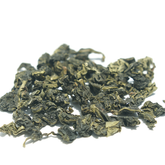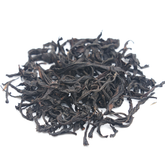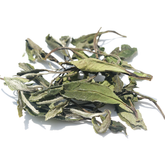What Does It Mean To Steep Tea? |NPTEA
If you've never encountered tea before, you might ask, "What does it mean to steep tea?" While this question might seem simple to experienced tea enthusiasts, it's completely understandable. In some regions of the Western world, tea is rare and often imported at high prices. China is the largest tea-producing country with the largest tea-growing areas around the world. It produces a wide variety of teas. Unfortunately, most of the premium Chinese teas have not been exported on a large scale.
What Does It Mean To Steep Tea?
Steeping refers to the soaking of tea leaves in water at a definite temperature in order to extract the natural compounds. These natural compounds define the aroma and taste of tea. The entire steeping process of tea is closely interlinked with the natural chemical makeup of the tea leaves themselves and solubility in water.

Here is the breakdown of key ingredients found in tea leaves and their effects.
Teign is polyphenols: accounting for 20-30% of tea leaves dry weight, these compounds will give astringency as well as contributing to tea bitterness. This contributes to form the tea color.Caffeine: About 2-5%, caffeine contributes a slight bitterness and brings out the stimulating effect of tea.Amino Acids: They comprise 1%-3% of tea and include L-theanine. They contribute a fresh, smooth taste to temper bitterness. L-theanine has a relaxing effect as well.Soluble Sugars and Pectins: These contribute to the sweetness and thickness of the tea.Minerals and Trace Elements: Although they are present in small amounts, they are beneficial to the body.Aromatic Compounds: These, though in trace amounts, define the aroma of the tea, whether floral, fruity, or honey-like.
We highly recommend trying natural Chinese tea at NPTEA, which is handmade and contains no artificial flavoring or coloring. It's a cup of tea entirely composed of natural compounds that have been widely recognized for their health benefits.
How to Avoid Bitter Tea?
Knowing a little about the science behind steeping tea helps you to get rid of bitterness from the over-extraction of certain compounds in tea polyphenols. The rate of extraction is dependent on three main parameters: water temperature, tea quantity, and steeping time.To help first-time users in making non-bitter tea, perfectly, regardless of the type of tea, follow these golden rules.
Temperature of water: Do not pour boiling water directly over tea leaves. Use lower temperatures for more delicate teas, such as green or white tea.
Tea Quantity: Use per the serving size of the tea product. Start with less tea and add more to taste, to avoid bitterness.
Steeping Time: Do not steep tea for too long. The most common cause of bitterness is over-steeping.
Learn More About Brewing Tea:
With these tips, you'll not only steep tea like a pro but also discover the authentic flavors of handcrafted Chinese tea.If you have any questions about making tea, please feel free to talk to us as well!
SEE MORE ABOUT CHINESE TEAS
If you have questions about selecting tea:
Learn-more-about-chinese-tea
If you have questions about the benefits of tea:
Health-benefits-of-chinese-tea
If you have questions about brewing tea:
How-to-brew-loose-leaf-tea






